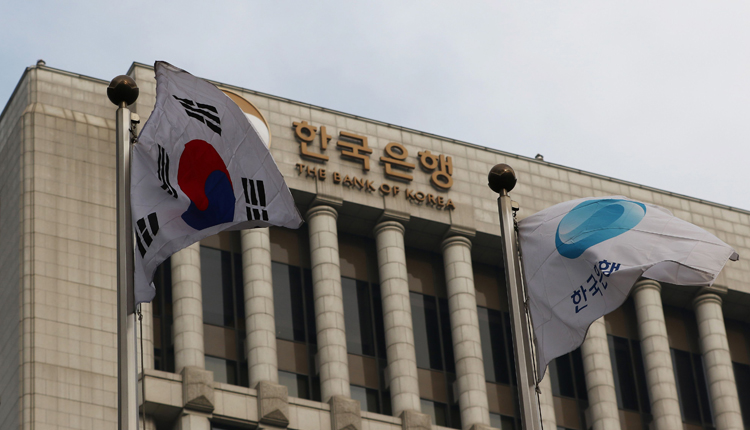South Korea’s central bank will likely keep its policy interest rate steady this week but cut next month as economic growth falters in Asia’s fourth-largest economy, a Reuters poll showed.
South Korean exporters have been hit by the Sino-U.S. trade war and the country’s tech manufacturers are also bracing for the impact of Japan’s curbs of exports to Korea of some materials used to make high-tech equipment.
Twenty-one of 36 analysts surveyed predicted the Bank of Korea (BOK) would leave its seven-day repurchase agreement rate KROCRT=ECI steady at 1.75% at its review on Thursday, the fifth time it will have kept rates unchanged. The remaining 15 analysts predict a cut.
Ten of those expecting no change this week foresee a cut at the next meeting on Aug. 30, indicating that a majority – 25 of 36 analysts – project a rate reduction by the next meeting. Another seven expect a cut later this year.
“The consensus for a 25 basis-point cut during the third quarter is so strong, and the timing is the only uncertain thing,” said Oh Suk-tae, economist at Societe Generale, who has forecast a cut next month.
At the last meeting on May 31, one of the BOK’s seven board members voted to cut the rate and another wanted a cut in July as economic growth slowed and inflation stayed low. Markets saw the split vote in the decision to keep rates steady as a sign the BOK was shifting to a dovish stance.
This week’s survey is the most closely contested since June 2015, when 15 of 28 analysts in a Reuters poll saw a rate cut. Eventually, the central bank delivered a surprise cut to cushion the economy from the effects of an outbreak of a deadly respiratory disease.
This time, the main difference in opinion between those predicting a rate cut this week or next month is whether the BOK can afford to lower rates before the U.S. Federal Reserve reduces its own policy rate, risking capital outflow risk.
The Bank of Korea last cut its policy rate in June 2016, since then it had lifted the rate by half a percentage point in two steps between late 2017 and late last year.
Local bond prices have pencilled in a rate cut or two in the near term especially since the Bank of Korea’s governor and finance minister both suggested the time was near for policy easing.
The Fed holds its policy meeting later this month, when interest rate futures traders price in a 72% chance of a 25 basis-point cut and a 28% likelihood of a 50 basis-point cut, according to the CME Group’s FedWatch tool.
Global investment banks have downgraded their forecasts for South Korea’s 2019 economic growth, with some expecting growth to slow below 2% from 2.7% set last year. Inflation is also seen far missing the central bank’s 2% target.
The Bank of Korea is scheduled to release its revised economic growth and inflation forecasts for 2019 at 0430 GMT on Thursday, with analysts seeing downgrades to both its 2.5% economic growth and 1.1% inflation forecasts.
South Korea’s economy surprisingly contracted in the first quarter from the previous three-month period, while annual inflation has stayed below its 2% target for the past seven successive months.
The Bank of Korea is due to release its advance estimates of second-quarter economic growth on July 25.
Source: Reuters
